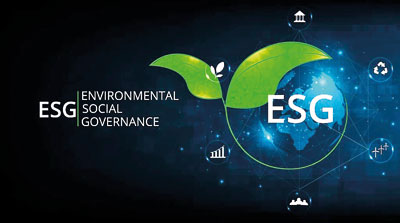CSR or ESG?
View(s):CSR stands for corporate social responsibility, as we all know. ESG, however, just entered the business lexicon and is now frequently used in place of CSR in today’s setting. Do CSR and ESG overlap? Is there a distinction? Why did ESG replace CSR? While there are still a lot of unsolved questions regarding everyday business issues, these inquiries may go unaddressed. This article compares and contrasts ESG and CSR.
What is CSR?
Corporate Social Responsibility (CSR) is a management philosophy that encourages businesses to include social and environmental issues into their business strategy in order to have a positive social impact and enhance their reputation. CSR goals could include things like lowering carbon footprints, enhancing labour laws, developing environmentally friendly offices, and doing projects like making new items from plastic trash.
The concept first gained popularity in the 1970s, and by the early 2000s, both large and small businesses had adopted it as a crucial strategy. Since that time, a lot has changed. While CSR is a great way to promote an organization’s initiatives, stakeholders today demand transparency and convincing proof that you actually live up to your promises. Businesses who do not have the necessary information to back up their CSR pledges or that only pay attention to the incorrect issues run the danger of being accused of greenwashing. That is the area where CSR can fail.
What is ESG?
ESG, or environmental, social, and governance indicators, are used in sustainability assessments to determine how resilient and sustainable a firm is and to hold it accountable for its sustainability claims.
Interest in ESG among investors and other corporate stakeholders has surged recently; it has even been dubbed the trend of the decade. One hand, it is thought of as a tool to more fully capture the dangers and possibilities an organisation faces. On the other hand, investors have no choice but to adapt as a result of the increasing number of ESG rules that are being imposed, such as the EU Taxonomy and the SFDR. According to a poll by Barnett Waddingham, the main reason for taking into account ESG elements in investment decisions and implementation was to comply with changing legislation and legal requirements.
 What is the difference between CSR and ESG?
What is the difference between CSR and ESG?
To sum up, corporate social responsibility (CSR) is a self-regulatory technique used by businesses to positively affect society.
CSR aids a business in a number of ways, including: communicating its sustainability commitments; developing a reputation as a responsible corporation; boosting brand credibility; increasing consumer loyalty; and luring and keeping better personnel.
ESG, on the other hand, goes a step further by assessing these efforts at a higher level of specificity, which is frequently desired by investors. It assists businesses in establishing quantifiable objectives that demonstrate their processes and their progress towards sustainability. Stakeholders in the modern world do not seek lofty goals. They actually desire to comprehend the business. Therefore, do not be afraid to report the objectives that have not yet been met. Instead, be honest about your areas of strength as well as your areas for development. Keep in mind that progress always beats perfection!
ESG assists a company with:
- Meeting current and upcoming regulations and demands;
- Responding to societal risks such as climate change;
- Acquiring real understanding of the company’s risks and opportunities;
- Increasing investor appeal;
- Unlocking competitive value;
- Increasing stakeholder trust among customers, investors, and other stakeholders; and
- Removing “greenwashing.”
After all, a business may be legitimate but unethical. Being legal is simply the beginning of being ethical. However, being ethical is greater than being legitimate. The distinction between CSR and ESG might potentially be stated in a similar way.
HitAd.lk is the best and biggest mobile phone market in Sri Lanka, and we guarantee you will find what you need here from our extensive listing of mobile phones for sale in Sri Lanka. Whether it’s a budget-priced smartphone for communication, or higher end features with advanced connectivity, there are many different options from which to choose from on our site!


